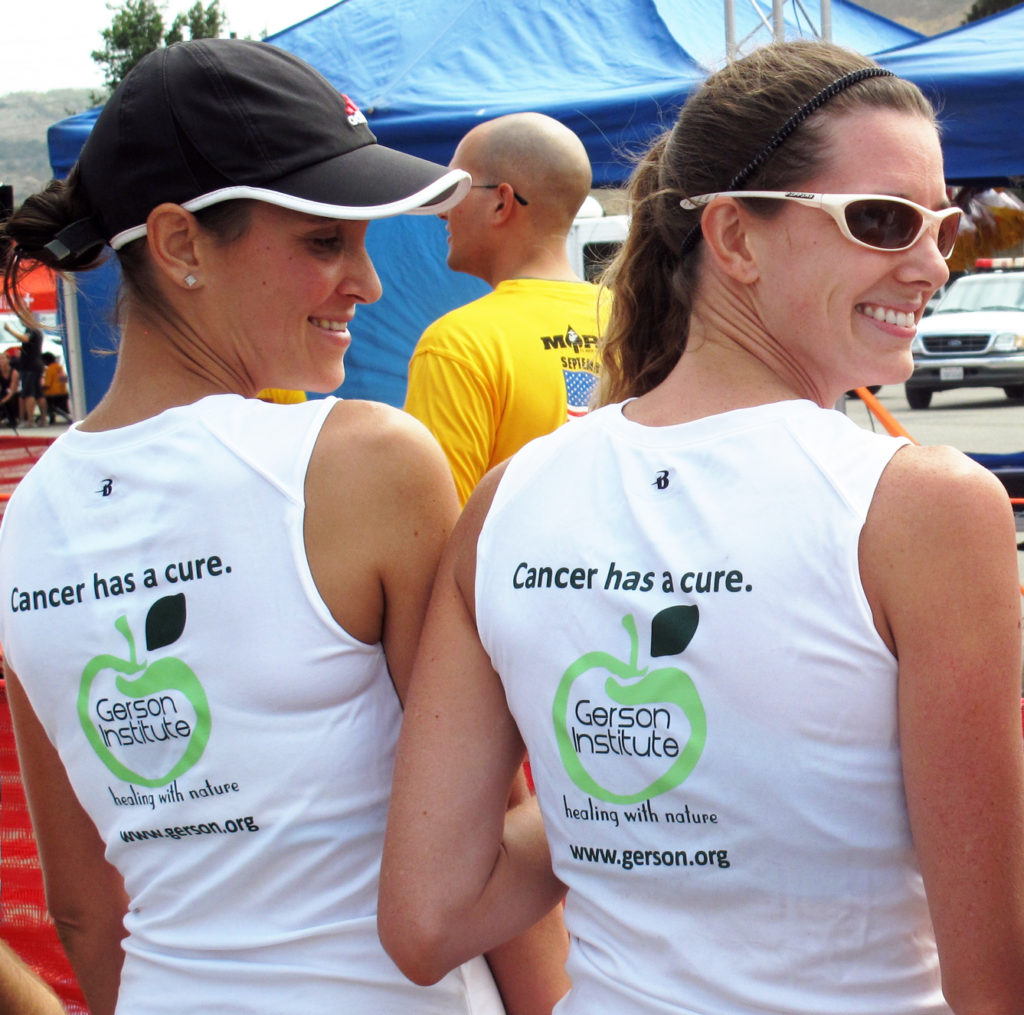Do you know someone with cancer? In today’s world, most people do.
The National Cancer Institute estimates a jaw dropped 22 million new cancer cases within the next two decades. With national expenditures for cancer care in the United States already estimated to reach $156 billion in just two years, the billion-dollar question on everyone’s mind is how to reduce the risk of cancer¹.
Let’s take a moment to first look at why we say, “Reduce the risk of cancer” rather than “prevent cancer” or “cancer prevention”. The truth is simple: there is no way to guarantee that anything will prevent the development of cancer. In our experience at the Gerson Institute, we have seen vegans, kids and a-pack-a-day smokers diagnosed with cancer.
Dr. Max Gerson’s revolutionary method of treating disease by addressing the underlying causes – nutritional deficiency and toxicity – helped paved the path and contributed to the foundation for clean eating and healthy living that we see today. While it’s fantastic that eating nutritious food and living a healthy lifestyle has become popular and trendy, it can still be overwhelming to navigate the sea of information out there.
Generally, advice on reducing the risk of cancer is similar across the board: lead a healthy lifestyle by eating plenty of fruits and vegetables, get exercise and refrain from toxic habits such as drinking and smoking. As a baseline, we will focus in on four key elements that help to reduce the risk of cancer.
LIFESTYLE

It is common knowledge that regular exercise is key to maintaining overall health. Dr. Gerson remarked that, “all people and animals need exercise every day, enough muscle work that the accumulated natural reserves will be processed and discharged.” More and more studies are revealing the implications of leading a sedentary lifestyle; so much so that a new term known as “sitting disease” has been coined to refer to increased risk of disease, including cancer, from excessive and prolonged sitting.
The National Cancer Institute recommends at least 150 minutes of moderate-intensity physical activity, 75 minutes of vigorous-intensity physical activity, or an equivalent combination of moderate- and vigorous-intensity activity, every week.
While it’s not always possible to exercise every single day, being aware is a good first step; consider taking the stairs instead of the elevator, stand while talking on the phone, go on a quick walk when you can (whether it’s 5, 15 or 30 minutes, something is better than nothing) and commit to at least one day of prolonged exercise; you can always increase your commitment as you feel the benefits of movement.
DIET
 Dr. Gerson’s earlier works addressed the fact that it is not a simple thing to outline one type of diet for all individuals. He extensively studied many of the physicians and nutritional researchers of his time and came to understand that there are many factors that influence the ideal individual diet for people.
Dr. Gerson’s earlier works addressed the fact that it is not a simple thing to outline one type of diet for all individuals. He extensively studied many of the physicians and nutritional researchers of his time and came to understand that there are many factors that influence the ideal individual diet for people.
As a general rule, Dr. Gerson outlined 25 percent foods of personal choice, and for the remaining 75 percent of foods consumed to be for the purpose of protecting the functions of the highly essential organs – liver, kidneys, brain, heart, etc. He also emphasized the importance of getting nutrients directly from food, rather than supplements.
Simply put, while the specifics of a healthy diet is different for each individual, a good general rule is to revolve your diet around eating organic produce, reducing salt and processed foods to a minimum, and consuming fruits, vegetables and other whole foods on a daily basis.
MENTAL/EMOTIONAL

Research has confirmed anecdotal evidence related to the negative effects stress can have on our health. Have you ever gotten sick during a stressful time? This happens because stress suppresses immunity-boosting gamma interferon and infection-fighting T-cells². The mind-body connection just cannot be ignored if reducing the risk of cancer is the goal.
Stress in life is inevitable and finding ways to cope is your best bet. Breathing exercises, yoga, simple stretches, prayer, meditation, taking a walk, listing three of your favorite things during a stressful situation (puppies, waterfalls, sunsets); no act is too small when combating stress. Over time, these small victories add up and you may find it more manageable to deal with stress overall.
TOXIC EXPOSURE

Minimizing toxic exposure is nothing new to Gerson patients, who rid their homes of air-fresheners, common cleaning agents and cosmetics. The same can be applied to help reduce the risk of cancer. The Environmental Working Group highlighted a 2015 study by the Halifax Project, who is investigating new ways in which toxic chemicals in our environment may cause cancer. It is impossible to completely avoid all chemicals, but we can certainly minimize our exposure to toxic elements by utilizing natural cleaning solutions, cosmetic alternatives, and cleaning up our immediate environment – add a plant from our list of 10 Plants That Clean the Air to each room in your home.
If you are a smoker, quitting smoking is a big step in terms of reducing the risk of cancer. Vitamin B3, or Niacin, is a staple supplement on the Gerson Therapy because it opens the capillaries, allowing more oxygen to flow through the blood. Niacin has also been shown to help reduce nicotine cravings, alcohol cravings, lower cholesterol, improve depression and promote healthy skin and hair. Please research use and precautions of Niacin and consult with your doctor before use.
The Gerson Therapy is a natural treatment system that activates the body’s extraordinary ability to heal itself through an organic, plant-based diet, raw juices, coffee enemas and natural supplements. The Gerson Therapy is used to treat chronic, degenerative diseases and is not recommended for use as a “cancer prevention” protocol. However, it’s principles of organic, whole-food and nutrient-dense diet; reducing toxic exposure; getting adequate rest and movement; and taking special care of the liver, are mainstays of health.
For those that are generally healthy, we recommend working with a Naturopathic doctor, nutritionist, dietitian or holistic physician to develop an individualized health maintenance protocol.
Visit our Treatment Options page for more information about referrals to a qualified medical professional trained in the Gerson Therapy.
REFERENCES
¹https://www.cancer.gov/about-cancer/understanding/statistics
² http://www.apa.org/research/action/immune.aspx
 Educational articles like this are made possible with the help of your donations. Help us continue the legacy of Dr. Max Gerson, his daughter Charlotte Gerson, and the thousands who rely on the Gerson Institute for vital educational materials and training.
Educational articles like this are made possible with the help of your donations. Help us continue the legacy of Dr. Max Gerson, his daughter Charlotte Gerson, and the thousands who rely on the Gerson Institute for vital educational materials and training.
This article was originally published in 2018




